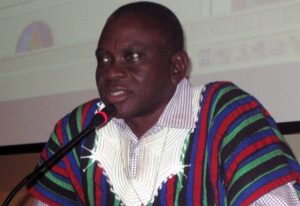Ambassador urges Ghanaians to follow proper travel procedures into Burkina Faso

Mr Boniface Gambila, Ghana’s Ambassador to Burkina Faso, has admonished Ghanaians to use formal processes and routes into Burkina Faso for purposes of safety.
He said it was dangerous for Ghanaians, especially those who lived in border towns to move into the neighbouring country without adhering to laid down processes, “If you are moving into Burkina Faso, go through the formal way.
“If you just move in, you are in a danger zone because Burkina; we say is a danger zone. I want to send this important message to our people, especially those within the border towns; Bawku, Paga and Hamile,” he cautioned.
The Ambassador gave the caution in a sideline interview with journalists during a joint Ghana and Burkina Faso Technical Committee meeting in Bolgatanga, the Upper East Regional capital.
The meeting brought together officials of the Ghana Boundary Commission (GhBC) and their counterparts in Burkina Faso to discuss issues related to land boundaries between the two countries.
Mr Gambila noted that even though residents in border towns had relatives in Burkina Faso, they could not just move in and out of the country.
“There are certain areas both governments are monitoring because of jihadists presence.
“So if you move along that route, you become a suspect and anything can happen to you. It has happened, and we don’t want it to happen again,” he said.
He recalled that seven Ghanaians from the Bawku area who crossed into Burkina Faso in 2023 to trace their cattle were still not found, and that governments of both countries were working to find them.
He further disclosed that some Ghanaians who were found moving into Burkina Faso without due process were also under detention.
“They have been seen so much in terms of movement, and like I said, don’t just move into Burkina Faso as usual.
“If you are going in, go through the proper route to be safe. It is important,” the Ambassador reiterated.
Speaking at the joint meeting, Major General Emmanuel Wekem Kotia, Commissioner-General of the GhBC, said it was the third of its kind after the first and second meetings were held at Paga in Ghana and Ouagadougou in Burkina Faso respectively.
He said prior to the meeting, a Technical Committee had met, and the meeting would enable them discuss the technical details of the Committee’s report which would include the reaffirmation of the international common land boundaries.
“So the Technical Committee will present their report during this meeting, and we are hoping that the results of their discussion is going to lead us to organize practical work as far us the two countries are concerned,” he said.
Major General Kotia indicated that they would further discuss how they could undertake sensitization exercises along the international common boundaries in communities scattered along the boundaries of Ghana and Burkina Faso.
Madam Salimata Dabal, the Permanent Secretary of the National Boundary Borders of Burkina Faso, said the meeting was critical for Burkina Faso, and the boundary lines between the two countries.
“We have some pillars, but at some point, the pillars were damaged in such a way that you can go through the border line without knowing if you are in Burkina Faso or in Ghana. This meeting will help us reconstruct pillars, make some new demarcations for it to be visible,” she said.
Dr Hafiz Bin-Salih, Upper East Regional Minister, said as they met to discuss boundary related issues, there was need for them to be guided by the fact that the two nations shared more than just a boundary.
“We share a history, a culture, and a mutual respect that transcends geographical boundaries. Our meeting today is not just about lines on a map or physical structures that demarcate our two countries, but about strengthening the ties that bind us,” he said.
He said the purpose of the meeting was multifaceted, aimed to address various crucial aspects of bilateral relations, noting that one of the principal objectives of the meeting was to review and validate legal instruments that underpinned their collaborative efforts in boundary management.
Source: GNA
